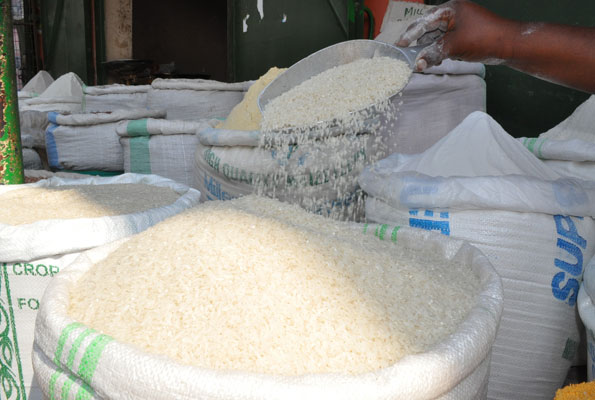State Finance minister David Bahati on Monday told the Parliament finance committee that Uganda was scrapping tax on imported rice to fight the food shortage in the country.
The Minister for Disaster Preparedness and Refugees and Member of Parliament for Lamwo County Hillary Onek recently said that following their assessment, it was discovered that 80 of the 112 districts need urgent food aid.
The country is experiencing intensive and extensive drought that has left nearly nine million people including farmers and herdsmen in despair as crops dry up and animals starve to death.
The drought was not helped by the fact that the price of rice and other food stuff has been raising over the past few months. A kilogramme of Super Pakistan rice that was going for Shs3000 in January 2017 is now at Shs4200 while the popular Kaiso has also skyrocketed from Shs2600 to Shs4000.
“As government, we have just resolved to remove taxes on imported rice for the next four months until the food shortage situation ends,” Bahati said.
Flanked by the finance ministry commissioner for tax policy Moses Kaggwa, Hon. Bahati on Monday told MPs that Cabinet has taken the decision to waive import tax on unprocessed rice to reduce the price of rice in the country.
Kaggwa said that government has been charging import duty of 75% on the value of imported rice including cost, insurance and freight equivalent to $345 per imported tone of rice.
According to statistics from Ministry of trade, Uganda consumes about 300,000 tonnes of rice a year and this demand has largely been supplemented by imported rice.
Uganda Revenue Authority data shows that an average of 2.6 million tones of unprocessed rice are imported into Uganda every month.
URA commissioner for customs Dickens Kateshumbwa says that government in June 2016 collected Shs11.8 billion, Shs5 billion in October 2016, Shs60 million in July 2016 and Shs6.8 billion in November 2016.
On January 1 2017, senior Finance minister Matia Kasaija has instructed the minister of East African Community Affairs, Kirunda Kivejinja, to terminate tax incentives given to rice importers.
All of a sudden, the ministry has decided to increase taxes on husked rice to equal that of already processed rice which drove up prices of rice in the market.











